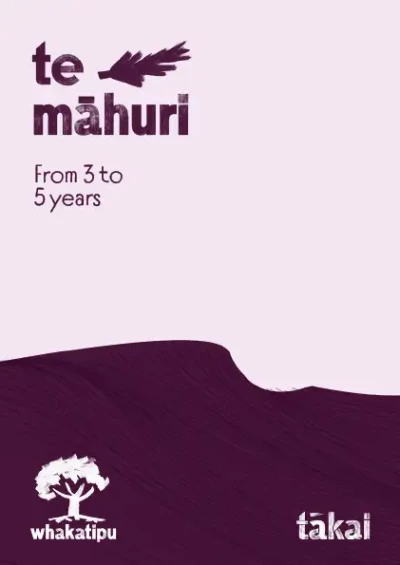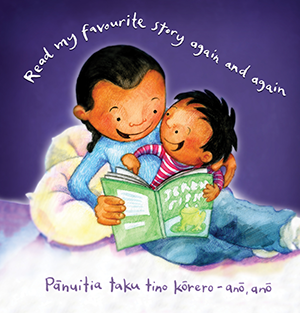Narrator:
Tāne and the basket of knowledge. The Māori gods, book 4.
Every Iwi has its own version of Tāne’s journey to fetch the baskets of knowledge from Tikitiki-o-rangi. These excerpts were taken from the teachings of the Mātorohahanga and Nepia Pо̄huhu.
Portions have been borrowed from the whare wānanga of Hokianga. Some have come from the School of Ancient Māori Weaponry.
There was a time, when Io-Matua-Kore, the supreme god summoned Rehua and Ruatau - heavenly guardians, to Mātangireia; his sacred home located at the highest of the twelve heavens, Tikitiki-o-rangi. Io commanded the two guardians to come down to Earth.
The mission, to find which of Ranginui and Papatūānuku’s sons could ascend to te Toi-o-ngā-rangi and fetch the baskets of knowledge.
There were three baskets; te Kete Tuauri: the basket which held ritual knowledge, memory and prayer; Te Kete Tuatea: the basket in which the black arts, malevolence, and knowledge harmful to mankind were kept. Te Kete Aronui: the basket that contained knowledge essential to man’s survival.
In addition to these baskets were two stones endowed with miraculous, godlike powers. Their names; Hookah-tai and Rehu-tai.
Rehua and Ruatau descended directly to Tū-te-aniwaniwa, the home of one faction of the divided family of Ranginui and Papatūānuku.
The eldest child Uru-tenganganā and his younger brother Whiro-te-tipua were there. Rehua asked Whiro: “What route will you take in your ascent to te Toi-o-ngā-rangi?”
“The Edge-of-the-Heavens, and from there, climb to the Uppermost Heaven.”
“You won’t succeed that way. The tempestuous wind will overwhelm you.
When Rehua and Ruatau were done, they headed straight to Wharekura; home to the second fraternity of the children of Ranginui and Papatūānuku.
They posed the same question to Tūmatauenga, Tūmatakākā, Rongo- marae-roa, and others. Some said they would go by Way of the Long-akaaka-vine, or via Heaven’s-Staircase. Neither was the answer Rehua was looking for.
But when Tāne was asked the question, he said: “I will take Heaven’s-Staircase and catch the Ascending-Clouds of te Toi-huarewa. They will carry me to Tikitiki-o-rangi.
Rehua and his companion agreed, and Tāne was taken to the spring at Maunganui. There, he was anointed and given the name Tāne-nui-a-rangi then told to go directly to te Pūmotomoto; the entrance to the Uppermost-Heaven.
When Whiro learned that Tāne would retrieve the baskets of knowledge, he resolved to complete the mission himself. Even with Uru-te-nganganā telling him that Tāne-nui-a-rangi was the anointed one, whiro paid no mind, setting off via the Periphery-of-the-Heavens.
Although his elder brother had left ahead of him, Tāne waited for the winds to subside before he and Tūpai headed off to begin their ascent of the Heavens. Following close on their heels to help them, was Tāwhirimātea.
Te Para-wera-nui is the southerly tempest. It lifted Tāne and the others and carried them along Heaven’s-Staircase to Tāuru-rangi; the entrance to the tenth Heaven, known as Te-rangi-naonao-ariki.
Again, Tāne was immersed in water to cleanse him of matter that pertained to his Earthly existence. Purified, he was forbidden to touch food, or drink water until he returned to Tāuru-rangi and had been released from the sanctity of the Upper-Realms-of-Heaven.
By now, resentment and anger had intensified within Whiro as he lay in wait at the entrance to Tikitiki-o-rangi.W With him, where te Tini-ā-poto, his militia of birds and insects including; mosquitoes, sandflies, spiders, wētā and all manner of creatures that are now, but irritants to mankind. Whiro’s plan was that they would strike Tāne, draw his blood, and kill him.
Whiro and his cohorts’ assault on Tāne was intense. Had it not been for Tāwhirimātea and the Tumultuous-Gales, who knows what fate may have had in store for Tāne and Tūpai. Suffice to say, the adversaries were blown to the nether ends of the Heavens. Eventually, Tāne and Tūpai arrived at the entrance to Mātangireia; the house of Io.
There to greet him was the Io the Parentless One and the multitude of Whatukura and Māreikura; the Guardians of the Heavens; embodiments of both the male and female form. They subjected Tāne-nui-a-rangi to the final purification rites before he entered the treasure house of Rangiātea, the first of whare wānanga.
At last, Tāne was presented with the three baskets of knowledge and the two sacred stones. If Tāne thought he had accomplished his mission, he was sadly mistaken. Free from the sanctions of the Uppermost-Heaven, Whiro’s army of insects attacked him once again as he traversed between the eleventh and tenth realms of Heaven. Rehua summoned the winds and the snow and together with Tāwhirimātea and Para-wera-nui, defeated the flying pests.
Not all of Whiro’s allies fell in the heat of battle, some were captured and brought back to dwell upon this Earth. Amongst them were; the bat, the owl, the mountain-parrot, the sparrow-hawk, the night-parrot, and the parakeet. Some are just creepy; the centipede, the wētā, the stick-insect, the grasshopper, and the daddy long-legs.
There were those of course, that you might say, Whiro sent purposely to pester mankind forever, like; the sand-fly, the mosquito, the blow-fly, and the midge. Among them all was the butterfly, perhaps as a reminder to us all that even among all that is bad, there is some good to be found.
That great massacre of Whiro and his army has since, become widely known as te rangi-kaupapa.
When the dust settled, Tāne, his companions, and their treasure, descended to the Lowest Heaven. Ranginui set the clouds alight as a sign that the mission has been completed.
Uruao and Tūpai sounded their trumpets, te wharara-o-te-rangi and pūoro-rangi to welcome Tāne and his convoy. The sound of the blast reached Tū-te-āniwaniwa and wharekura and Huaki-pо̄uri.
Almost everyone gathered at Maraenui for the arrival of Tāne-nui-a-rangi, the three baskets of knowledge, and the sacred stones. The treasures were welcomed, apportioned, and supplanted on Earth. And mankind emerged into this world of enlightenment and understanding. Since that time, Tāne-nui-a-rangi also became as ; Tāne-matua, Tāne-te-waiora, Tāne-te-torokaha, Tāne-tahurangi, Tāne-maiki-roa among many other names. But those are stories for yet another time.

 pdf 11 MB
pdf 11 MB












